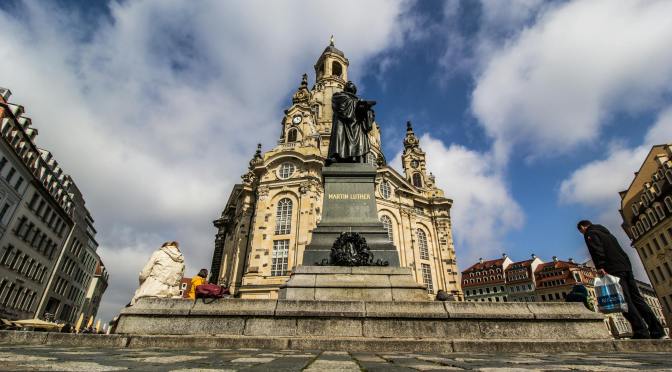This week has been a big week for my Doctor of Ministry studies. For a good chunk of the winter, I have been working on a course on the Gospel of Mark, a lot of learning which I incorporated into my preaching (and will continue to) and into our Lenten study. I handed in the paper for that course early (something the 22 to 26-year-old me never achieved in Seminary). Our class cohort was also informed of our thesis project advisors, which is a big deal. My project advisor is the professor who will be walking with me through the development of my fully formed research question and proposal, through actual research and into the writing phase. All of that starts this fall and will take me through to the winter of 2026. So, very exciting indeed!
This week I completed another smaller paper on the ‘Invocavit’ Sermons of Martin Luther, the most famous of his sermons during the Reformation. This paper was the first for a class where the bulk of the “class time” will happen in Germany for two weeks in May. I will be travelling on a study tour with world-renowned Luther scholar Rev. Dr. Gordon Jensen, who was also a much-beloved seminary professor of mine. We will visit Wittenberg primarily, the town where Martin Luther lived when he was doing much of his Reformation writing. We will also see several other Reformation places and other sights in East Germany.
We will get to do things like see (and maybe hold) Martin Luther’s very own Bible, see the church he preached in, and the university he taught at. We will also go to Leipzig to see one of the places where Johann Sebastian Bach lived and worked. It is all very exciting for this history nerd.
As I was preparing the first paper for this class, I was surprised (even after studying Luther in seminary) to learn about Luther’s approach to dealing with change. His ‘Invocavit’ sermons were eight sermons he preached in eight days to the people of Wittenberg after months of unrest and conflict over how to go about making changes together to their lives of faith. They were arguing over how to worship and what church rules they ought to follow.
It all sounded so very familiar. We are still negotiating and sometimes arguing over very similar things today. Ironically, it also sounds like what we will read in The Book of Acts about the early Church as the new Christians sorted out how they would be a community, too.
Luther’s message to the people of Wittenberg amid all the chaos was to remain committed to the Gospel. Like the folk then, we have challenges and difficult waters to navigate ahead. Also like the folk then, I think Luther’s message applies to us. Whatever challenges come, we too, are called to remember the Gospel, that the whole reason we are doing all this church stuff, the reason we are being a community together, is because of our call to proclaim the Gospel to one another, to our siblings in faith and to our neighbours and the world around us.
It sounds like a good lesson to learn from our own history.

